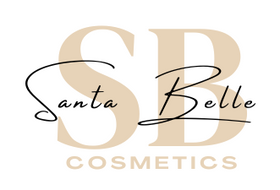Can Teeth Whitening Damage Your Teeth? Separating Myth from Reality
Introduction
Hey everyone, let’s talk about a question that’s been on a lot of our minds: Can teeth whitening damage your teeth? In our quest for that dazzling Hollywood smile, it’s crucial to know what’s myth and what’s reality. As someone who loves a bright smile but also values dental health (thanks to a memorable lecture from my dentist), I've done my homework and even tested a few theories myself. Let's debunk some myths and get to the truth about teeth whitening.
Myth 1: Whitening Damages Tooth Enamel
Understanding the Process
One common fear is that teeth whitening products, especially those containing bleaching agents like hydrogen peroxide or carbamide peroxide, can damage tooth enamel. The reality? When used correctly, these products are generally safe and do not harm the enamel. The key is proper usage and not overdoing it.
Personal Experience
I remember using a whitening kit and worrying about my enamel. But after talking to my dentist and using the product as directed, I realized that my fears were unfounded. My teeth not only got whiter but also didn’t feel any different in terms of sensitivity or strength.
Myth 2: Whitening Leads to Permanent Tooth Sensitivity
Temporary Sensitivity vs. Permanent Damage
It's true that some people experience tooth sensitivity during the whitening process. However, this is usually temporary and subsides once the treatment is complete. Permanent sensitivity from whitening is rare when the products are used as intended.
Managing Sensitivity
If you do experience sensitivity, there are ways to manage it. Switching to a toothpaste designed for sensitive teeth or taking a break from whitening can help. Our products are formulated to minimize sensitivity, offering a comfortable whitening experience.
Myth 3: All Whitening Methods Are Equally Effective
Various Methods, Different Results
There’s a wide range of whitening products out there, from toothpaste to strips to professional treatments. Not all are created equal in terms of effectiveness. For example, whitening toothpaste is great for surface stains but may not dramatically change the color of deeply stained teeth.
Finding What Works for You
It’s about finding the right product for your needs. If you’re looking for a more noticeable change, professional treatments or at-home kits with higher concentrations of whitening agents might be more effective.
Myth 4: Natural Remedies Are Safer and Just as Effective
The Appeal of Natural Solutions
Many people turn to natural remedies like activated charcoal, baking soda, or lemon juice. While they may seem safer, they can be abrasive and may damage enamel over time. Also, their effectiveness in whitening teeth is not as reliable as commercial products.
Balancing Natural and Commercial Products
If you prefer a more natural approach, look for commercial products that incorporate natural ingredients safely and effectively. Our range includes options that strike this balance beautifully.
Myth 5: The Stronger the Product, the Better
The Temptation of High Strength
You might think that the stronger the whitening product, the better the results. However, higher concentrations of bleaching agents can increase the risk of sensitivity and gum irritation.
Smart Whitening
Choose a product that offers a safe concentration of whitening agents. It’s better to gradually whiten your teeth than to go for an overly strong product that might cause discomfort.
Conclusion
So, can teeth whitening damage your teeth? Generally, the answer is no, especially when you use the right products in the right way. It’s important to follow instructions, understand your own teeth’s sensitivity levels, and choose products from reputable brands. Remember, the goal is a bright smile that’s both beautiful and healthy. With the right approach, you can achieve that sparkling smile without compromising the well-being of your teeth. Keep smiling bright, everyone!

